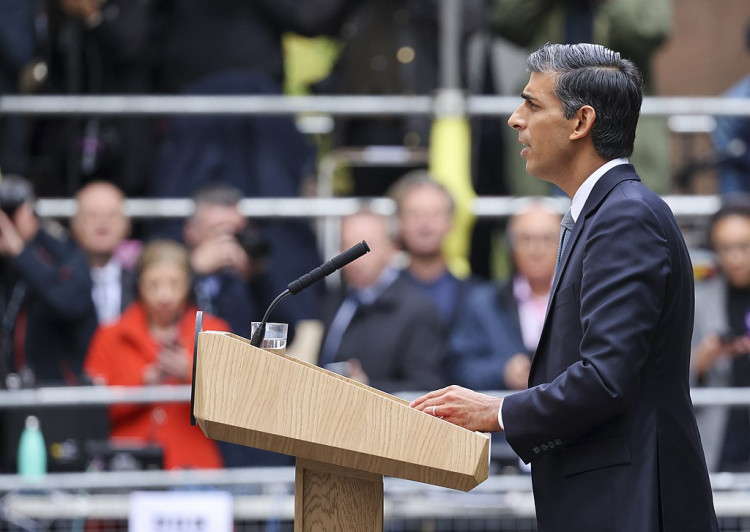UK Prime Minister Rishi Sunak is facing mounting pressure to take a tougher stance against China after the country was accused of being behind a series of "malign" cyberattacks targeting the UK's Electoral Commission and dozens of MPs and peers. The allegations have prompted calls for the government to officially designate China as a "threat" and impose sanctions on those believed to be involved in the state-backed interference.
Deputy Prime Minister Oliver Dowden is expected to make a statement to the House of Commons on Monday afternoon, outlining the government's response to the cyberattacks and potentially announcing retaliatory measures against Chinese officials. The hack on the Electoral Commission, which involved the personal data of 40 million voters being compromised, reportedly began in August 2021 but was not identified until October 2022.
Speaking to reporters, Prime Minister Sunak described China as "the greatest state-based threat to our economic security," insisting that the UK has "very strong" capabilities to resist such cyberattacks. However, former Conservative Party leader Sir Iain Duncan Smith urged the government to "end its naivety" on China and compared the current policy to appeasement in the 1930s.
"We need to be much stronger and tougher. The lesson we learned from the 1930s is that appeasement never works," Sir Iain said. "If you are strong, you tell them what's wrong and that you are not going to put up with it. And eventually, they will probably back down. But if you don't, they just keep taking advantage of that. And that's our biggest problem."
Sir Iain, along with a small group of China-hawkish politicians, was briefed by Parliament's director of security, Alison Giles, in relation to the hack. The group, which included former minister Tim Loughton, crossbench peer Lord Alton, and SNP MP Stewart McDonald, insisted that they would not be "bullied into silence by Beijing."
"We have been subjected to harassment, impersonation, and attempted hacking from China for some time," Sir Iain said at a press conference in Westminster. "We must now enter a new era of relations with China, dealing with the contemporary Chinese Communist Party as it really is, not as we would wish it to be."
The incident has sparked a debate over the government's approach to Beijing, with some senior Conservatives calling for a more robust response. Nuclear minister Andrew Bowie defended the government's cybersecurity capabilities, stating, "We will stop at nothing to ensure that the British people, our democracy, our freedom of speech, and our way of life is defended."
China has preemptively rejected the claims, with Foreign Ministry spokesperson Lin Jian accusing London of "spreading disinformation" and stating that China itself is a victim of cyberattacks. "Designations of cyberattacks are a highly complex and sensitive issue," Lin said. "There should be comprehensive and objective evidence, rather than slandering other countries without any factual support, let alone politicizing cybersecurity issues."





